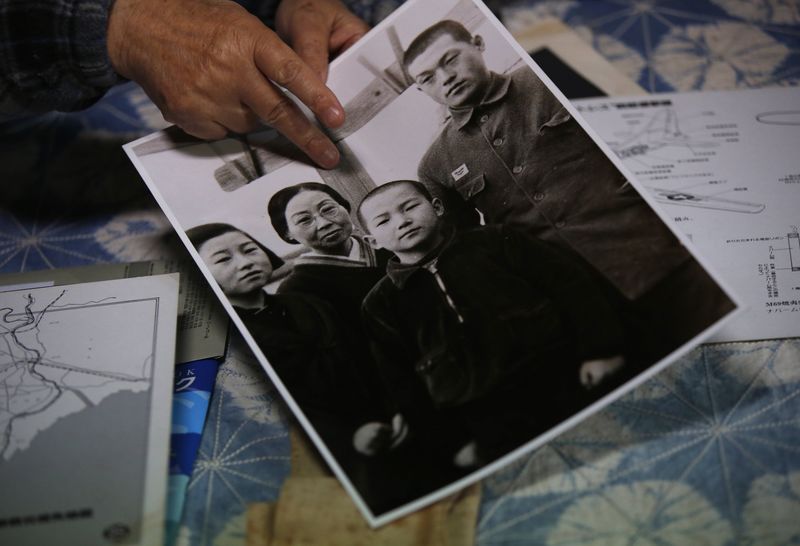By Elaine Lies
TOKYO (Reuters) - Katsumoto Saotome was 12 the night he ran for his life through a sea of flames, jumping over smouldering railroad ties along a train track as U.S. B-29 bombers rained incendiary bombs down around him.
The U.S. bombing after midnight on March 10, 1945, annihilated a wide swathe of northeastern Tokyo, packed with small factories and houses made of wood and paper.
An estimated 100,000 people were killed, many of them women and children - a toll higher than those of the Dresden fire bombing and the atomic bombings of Hiroshima and Nagasaki.
Now, as memories fade of how civilians suffered during World War Two - suffering Saotome blames on Japan's wartime leaders who thought of their citizens as "weeds" - the 82-year-old author fears Japan may be marching towards war again.
"I think we're turning backwards, down that road," said Saotome, citing Prime Minister Shinzo Abe's plans to change Japan's war-renouncing constitution, his more muscular security stance and a state secrets act passed last year.
"Everyone thinks at first that it's nothing, but more and more things accumulate, and then it's repression. I worry about what happens to women and children in this situation. We have to talk about it, maybe that will put a brake on things."
For Saotome and others of his age, the war stole their childhood. In school, before being conscripted to work in factories, they learned that the "kamikaze" divine wind would annihilate Japan's enemies. Should Japan lose, they would have to choose death over dishonour and kill themselves.
"On August 15, the day the war ended, we learned the Emperor would speak to us by radio. This was unheard of," he said.
"All I could think was that he was going to ask us all to die. Even a child knew by then that the divine wind wouldn't save us."
SEA OF FIRE
That March, Tokyo was being bombed day and night. Exhausted residents chose to pull blankets over their heads and sleep when air-raid sirens blew instead of heading to shelters turned icy by an unusually cold winter.
Saotome, who lived near where Tokyo's Sky Tree tower now stands, was woken by his father's shout to a sea of red around their house. They piled belongings on a cart and fled through the flames. Wind fanned by the conflagration plucked possessions from peoples' hands, flinging them through the air.
"I didn't know if I was really running or if I was in a dream, if I was flying through space. It still gives me goosebumps," Saotome said.
Just before dawn, they reached the Sumida river, its water filled with bodies that he could barely see through eyes blurred by smoke and ash. The sun rose, but the city was gone.
With more than 80 percent of Japanese, including Abe, born after the war, Saotome worries that reluctance to discuss painful issues may mean repeating past mistakes. Political apathy is also a worry, he says.
Then there are Abe's moves to recast wartime history in a less apologetic tone. Recently the government asked a U.S. textbook publisher to change references to wartime "comfort women".
"Those of us who survived have a duty to become a voice for the voiceless," Saotome said.

"If I'm quiet, it means I've accepted the situation. If we don't speak up, the past will be made to disappear."